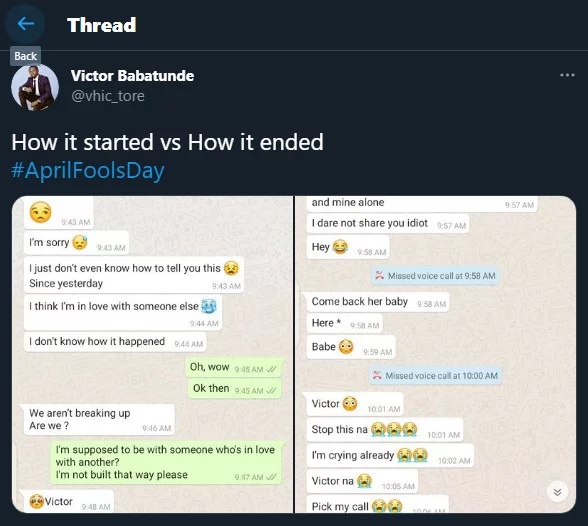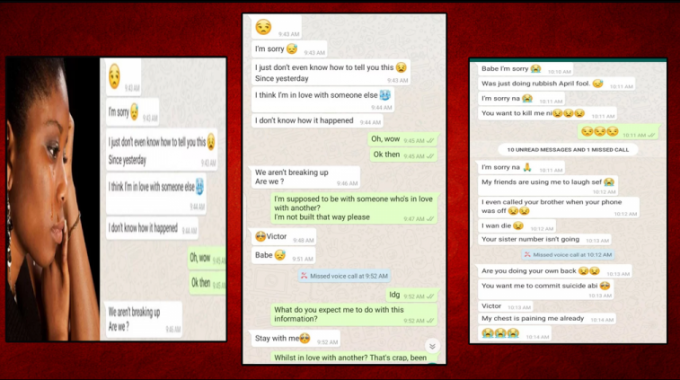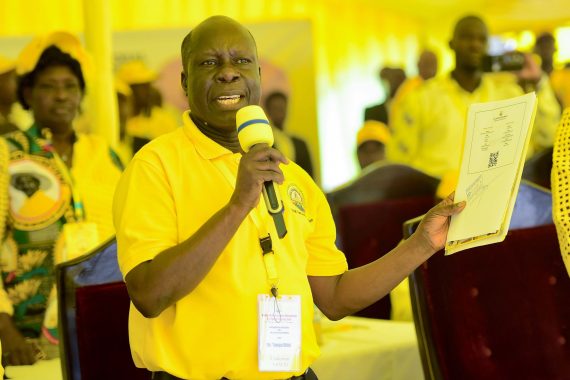A lady who thought it was cool to play an April Fool’s Day prank on her man is seriously regretting her actions.
She chatted her boyfriend up on WhatsApp and told him that she is in love with someone else.
However, rather than throw a tantrum or be heartbroken, the man identified as Victor Babatunde acted cool and accepted it in good faith.
Surprised by his calmness, the lady asked if they were breaking up and he answered affirmatively.
She then pleaded for him to stay with her even though she’s in love with someone else, but Victor said that cannot happen.
The lady eventually said it was an April Fool’s prank but it was already late because at this point the lad was no longer interested in the conversation and he ignored her.
Victor took to Twitter and shared screenshots of their chat.

Read below:



About April Fool’s day;
April Fools’ Day or April Fool’s Day…
On April 1, 1700, English pranksters begin popularizing the annual tradition of April Fools’ Day by playing practical jokes on each other.
Although the day, also called All Fools’ Day, has been celebrated for several centuries by different cultures, its exact origins remain a mystery.
Some historians speculate that April Fools’ Day dates back to 1582, when France switched from the Julian calendar to the Gregorian calendar, as called for by the Council of Trent in 1563. People who were slow to get the news or failed to recognize that the start of the new year had moved to January 1 and continued to celebrate it during the last week of March through April 1 became the butt of jokes and hoaxes.
These pranks included having paper fish placed on their backs and being referred to as poisson d’avril (April fish), said to symbolize a young, “easily hooked” fish and a gullible person.
April Fools’ Day spread throughout Britain during the 18th century. In Scotland, the tradition became a two-day event, starting with “hunting the gowk,” in which people were sent on phony errands (gowk is a word for cuckoo bird, a symbol for fool) and followed by Tailie Day, which involved pranks played on people’s derrieres, such as pinning fake tails or “kick me” signs on them.
Enock Mugabi aka iWitness is a Journalist, Seasoned Writer and Music Analyst with a passion for sports.
Connect with him on social media using the links below in bio.
















